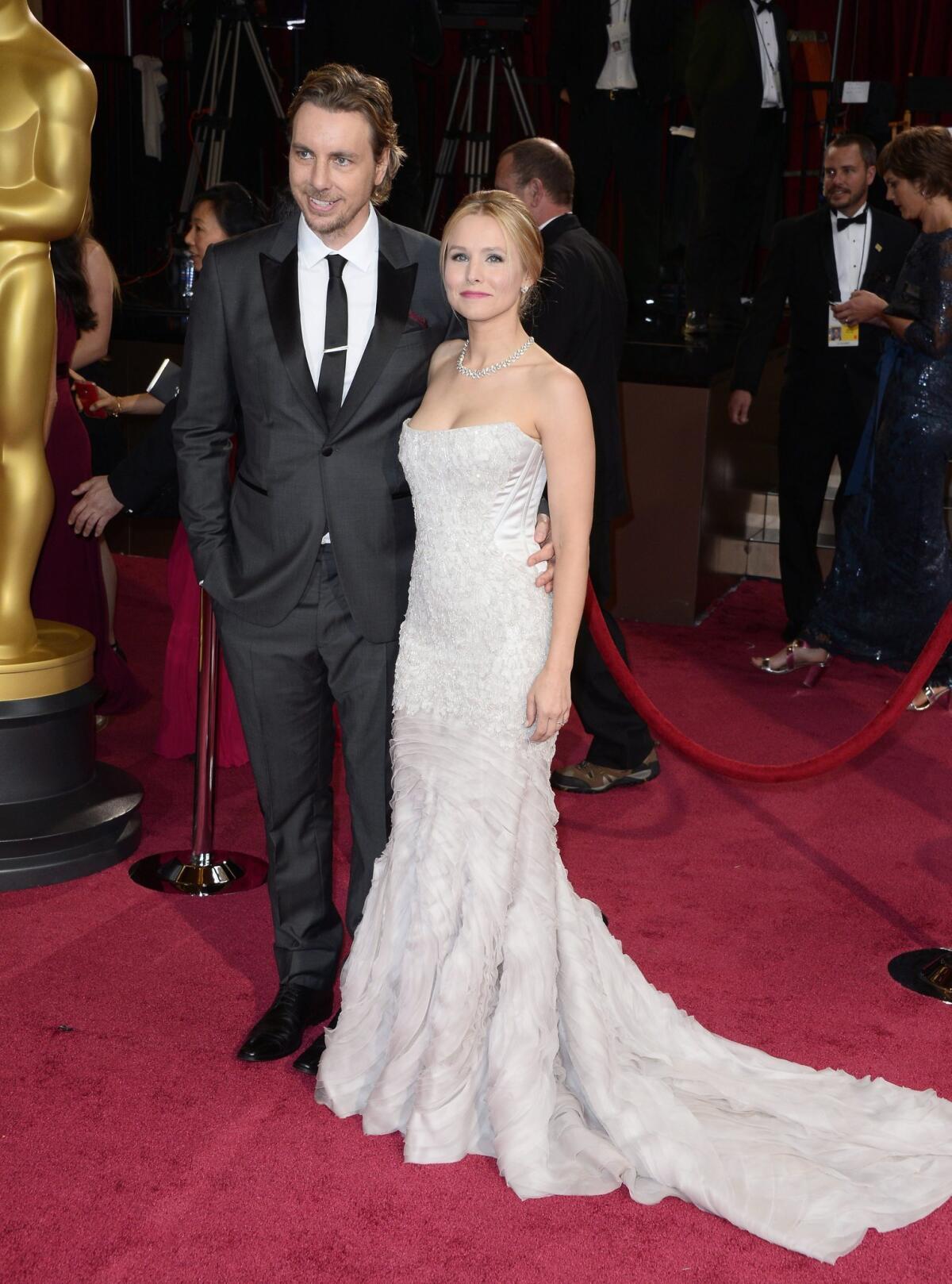Kristen Bell and Dax Shepard’s scheme to sideline aggressive paparazzi

Consuming celebrity news, you might think that nothing is off-limits to the prying eyes of the paparazzi. In late January, actors Dax Shepard and his wife Kristen Bell launched a campaign on Twitter to end harassment they face from the paparazzi for pictures of their baby. Using the hashtags #pedorazzi and #NoKidsPolicy, Shepard and Bell called on the celebrity gossip media industry to stop using these images and for fans to stop buying them.
Some media outlets took the tweeting seriously. Recently ET, People magazine and celebrity gossip blog Just Jared pledged to stop publishing unauthorized photos of celebrities’ kids. And on Wednesday, Perez Hilton posted his commitment to the cause.
These are notable first steps in limiting the kinds of unchecked access the public thinks it’s entitled to have into the lives of celebrities. But while we can congratulate these companies for this rare display of restraint within the celebrity media industry, we should recognize that there’s plenty of blame to go around.
Too many consumers display a twisted sense of entitlement when it comes to gawking at celebrities’ lives. From celebrity breakups to makeups, manicures to miscarriages, we demand unfettered access to the private lives of our celebrities. The paparazzi are the embodiment of that public demand.
While the paps certainly have the 1st Amendment on their side, it’s problematic when these photogs harass celebrities, and especially their children. Last August, during a hearing in support of a bill aimed at protecting the children of celebrities from paparazzi, actresses Jennifer Garner and Halle Berry described some of the harassment their families experience from photographers.
Nearly crying, Garner described how paparazzi aggressively follow her and her children. “I don’t want a gang of shouting, arguing, law-breaking photographers who camp out everywhere we are, all day, every day, to continue to traumatize my kids,” she said. Berry said that the constant presence of photographers yelling and taking pictures has made her young daughter afraid to go to school.
Senate Bill 606, which was signed into law in September, changes the definition of harassment to include photographing a child without a guardian’s permission. This is good, presumably, for protecting celebrities’ kids in California. Still, Shepard and Bell felt the need to launch their campaign after the law took effect Jan. 1. And it’s also worth highlighting a point The Times’ editorial board made last year: Law enforcement doesn’t do enough to enforce laws aimed at abusive paparazzi.
Explaining his concern, Shepard recently wrote in a blogpost:
“I personally believe, and I understand a lot of people differ on this point, that protecting her includes keeping her life private until the moment she decides otherwise. I think she is entitled to that. I think every minor is entitled to that. My wife and I, ever the approval-junkies, made a decision to get into show business and become public figures, but she has not. She hasn’t even decided if she prefers pureed carrots to peanut butter.”
Shepard has said that he believes it’s up to the public to stop the out-of-control pursuit of celebrity gossip: “The consumer is the only one that can put an end to this. They are the only ones with real power.”
But is that true?
While we should all reject these kinds of images, is that really enough? After all, we’re not the ones profiting from them, and throughout the chain of supply and demand, there’s much blame to share. It’s too easy to blame this solely on the paparazzi because they’re just doing their (distasteful) job. They wouldn’t be popping out of bushes at playgrounds frequented by celebs’ children if they didn’t get paid well for it.
Celebrity gossip is big business, and media companies have a financial interest in getting page views or selling magazines, regardless of how unsavory their practices. Our obsession with celebrity gossip has made companies such as Gawker and TMZ very rich.
Is this a sign of things to come for celebrity media? Maybe. But perhaps it’s also a shrewd business decision.
Celeb-focused media outlets need to be a little friendly with celebs if they want to continue to have “authorized” content to publish. Kristen Bell threatened to stop going to celebrity gossip magazines with authorized content if they continued running unauthorized photos of her baby. It’s possible that other celebrities would follow suit if none of the outlets made a move.
Putting a stop to publishing unauthorized photos of celebrities’ kids gives the parents and their child the space to make the choice to be in the public eye or not. While this isn’t a problem that many parents can relate to, we can relate to wanting to protect our kids from situations that could frighten or harm them, including protecting them from the harassment of paparazzi.
ALSO:
I was wrong about gay marriage
$1 billion in U.S. aid to Ukraine? Who are we, Santa Claus?
When rulers go bad: A peek inside 5 doomed dictators’ opulent lifestyles [Photos]
Susan Rohwer is a freelance journalist. Follow her on Twitter @susanrohwer.
More to Read
A cure for the common opinion
Get thought-provoking perspectives with our weekly newsletter.
You may occasionally receive promotional content from the Los Angeles Times.










